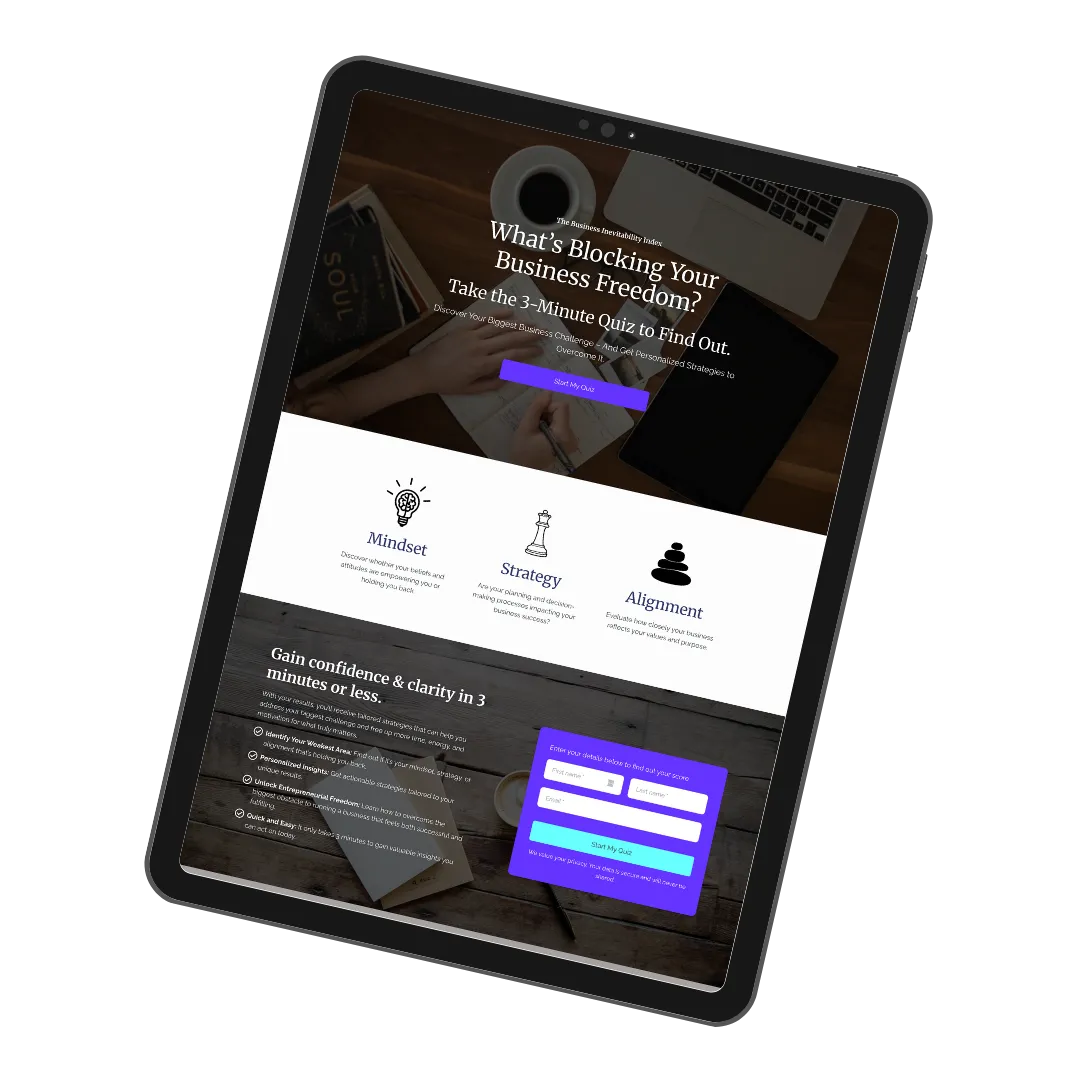Business Coaching For The
Radically Authentic
Helping Entrepreneurs Build Momentum, Playfully
Triple Their Income, And Have Fun Doing It
Want To Discover What’s Really Holding You Back In Business?
Hint: It’s not your “willpower” or other exhaustible resources.
Familiarize yourself with your biggest business challenges and get personalized strategies to overcome them!


POV: You’re Ready to Grow Your Business, And You Find Lucid Shift Coaching
Suddenly, everything clicks.
You’ve got a business that’s growing in a way that feels good everywhere. Not just on paper, but in your body, your schedule, and your bank account. You’re making BOLD moves, not because you’re hustling your way there, but because you now have the clarity, support, and momentum to move with intention.
You’ve got a kick-ass strategy that feels aligned with your “why,” and you’re no longer carrying it all alone. But more than anything, you’re finally feeling like your power, your vision, and your potential are being supported by people who care about your success.
This is the kind of freedom and flow you get when your coaching is aligned, expansive, and actually fun.
Hey There, I’m Ben
And I started Lucid Shift Coaching to help badass entrepreneurs (like you) turn up the dial and create an aligned life and business, minus the constant hustle and grinding.
My life is centered around my passions for growth, community, and the CPOs (Chief Pup Officers) Pixie & Sprite.
I’m a firm believer that you can have all the strategy in the world, but the mindset component is what actually moves the needle. My passion is to give entrepreneurs opportunities to master their mindset, break free from self-doubt, and create a business based on playful possibilities.
‘Cause when you shine your light and create a clear path, that’s when you create a Lucid Shift.
Want to learn how I got here?

Check Any Of These Boxes?
You’re driven as hell, but you aren’t sure of the next steps and are tired of feeling stuck
You’re carrying your business on your back and want to step into a leadership role, but aren’t sure how it will run without you being the doer as well
You suspect you may be getting in your own way, and you want someone to challenge the stories you’re telling yourself
You’ve tried coaching or programs before, but felt like SOMETHING was missing
You feel isolated as a leader and want dedicated help for your business
You’re making money, but you’re hustling, grinding, and you’re tired of the ‘freedom’ you’re after costing you your time, energy, and joy.
Getting Smart Founders Un-Stuck Is My Specialty
Insight and action are the keys to the coaching container. I help you make this possible by creating safe spaces to unlock your…

Mindset
So you can stop spinning in self-doubt and start seeing possibilities for yourself (and your business!) that you haven’t seen before. We’ll shift your limiting beliefs and create new mental patterns that allow you to take bold action from a grounded and empowered place.

Strategy
So you’re not just doing more - you’re doing more of what actually works for YOU. We’ll build aligned systems that support your goals, your capacity, and your vision, minus burnout, bro-marketing, and unnecessary fluff.

Alignment
So your business feels like an extension of who you really are. We’ll reconnect you with your values, your “why,” and your unique strengths. We want your sustainable success to feel 100% aligned with the “you” that you are.
And when all of this starts working together? You get momentum that feels natural. Growth that feels fun! And a business that feels like you are (finally!) the one in the driver's seat.
“So, What’s The Secret?”
Can I be REALLY honest here? looks around for objections
Great ‘cause there is no secret to business success.
Long-lasting success (the kind you’re after) comes from clear thinking, consistent action, plus a dash of playful curiosity. Business can be fun! My clients see the most success when we dig deep into their mindset and any beliefs they’re holding onto, create strategies based on evidence, run the experiment, and address the highs and lows along the way. And since my coaching style is more than just “see you next week,” I’ll be with you every single day to check in and give you the most support in between sessions.
At The End Of The Day, You Didn’t Start Your Business To Hustle & Grind
You started it for freedom. Freedom to follow your passions. Freedom to make big moves simply because you want to. And freedom to create revenue that allows you to live the life YOU want to live.
But lately? You’re feeling less free than when you started.
I’m here to tell you that with some thoughtful insight and lots of playful challenges, together we can turn up the dial in your business and create momentum that feels fun, sustainable, and incredibly fulfilling. And by doing all of this? I’m confident that your business (and life!) will grow so you can achieve the freedom you’ve always wanted.
© 2025 Lucid Shift Coaching - All rights reserved | Designed By Summerfield Studio
